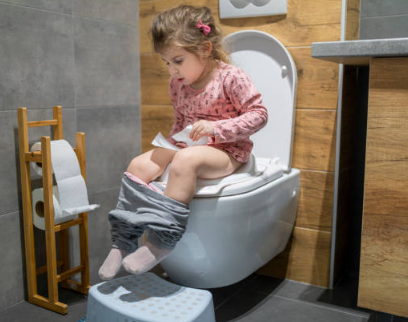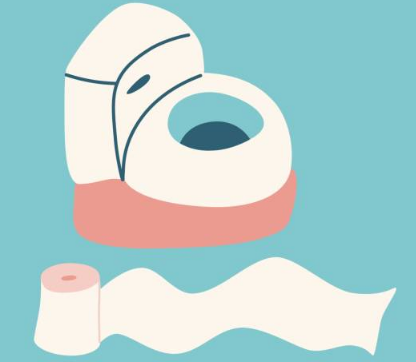Many parents believe that nighttime dryness should go hand in hand with daytime dryness. But anyone who has gone through the potty training process knows that the two don’t always happen at the same time. Experts say that even if your child has mastered the art of using the potty during the day, they may not be ready to wear underwear at night. In fact, staying dry at night is considered the final stage of potty training.
Ari Brown, MD, co-author of Baby 411 and Toddler 411, says it’s not uncommon for children to wet the bed before age 7 due to a small bladder and good sleep habits. In fact, studies have found that 15 to 20 percent of children still wet the bed by the age of 5.
We spoke to experts to find out why it often takes longer for younger children to master nighttime potty training and got advice on how to make nighttime potty training easier.

Why Does Night Potty Training Take Longer?
Nighttime potty training may take longer than daytime potty training. To be successful at night, a child’s bladder must be large enough to hold all the urine that the body produces during the night, and their brain must be mature enough to wake up with the urge to go. These milestones may occur months or years after successful day training.
Doctors also note that parents of older children who wet the bed often wet the bed as a child. Research supports this observation: researchers have identified genetic variants that cause nocturnal enuresis (the medical term for bedwetting in people over 5 years of age), meaning that some children have a genetic predisposition to bedwetting later in childhood.
Is My Child Ready for Nighttime Potty Training?
So, how do you know when it’s time to throw away overnight diapers or training pants? It depends on developmental readiness and happens differently for each child. Gender may influence when a child is ready for daytime and nighttime potty training, and some studies have shown that children who are designated as male at birth may be slightly delayed in this regard compared to female children. But preparedness still varies from person to person.
Here are some promising signs that your potty training at night is ready:
- Your child uses the potty often during the day.
- They stay dry for several nights in a row.
- They can be kept dry while napping.
- They expressed interest in wearing underwear in the evening.
You also want your child to be able to go to the bathroom independently, so make sure they’ve transitioned from a crib to a large one’s bed. Wendy Sue Swanson, MD, a pediatrician at Seattle Children’s Hospital, said, “If kids are potty training, they need to use the toilet 24/7 so they can reach it themselves when they need to. ”
Of course, if you think your child isn’t ready for big kids bed and potty training at night, it doesn’t hurt to let them wear more diapers or training pants for a while at night. Just make sure to limit the use of diapers before bed: put them on at night before putting them to bed, and take them off as soon as they wake up in the morning.

The Secret to Successful Potty Training at Night
Want to increase your chances of success in potty training at night? Try these tips and tricks:
- Make sure your child goes to the toilet regularly during the day.
- Encourage hydration during the day, but limit alcohol consumption one hour before your child’s bedtime.
- Help them use the potty half an hour before bedtime and just before bedtime.
- Wake up your child to use the potty again before going to bed.
- Tell them to go to the bathroom anytime they wake up at night.
- Keep the path leading to the bathroom well-lit so that your child feels safe and comfortable when walking at night.
- If your child needs to use the bathroom, invite you to wake you up.
- Buy a disposable sheet protector or use a protective mattress cover to protect your child’s mattress and make it easier to change if your child has an accident in bed at night.
When starting to try night potty training, it may also be helpful to set your own alarm and take your child to the toilet in the middle of the night. Also, be sure to use the potty as the first thing your child does when they wake up in the morning.
Bedwetting After Toilet Training
While delayed nighttime potty training and even occasional nighttime accidents are normal for younger children, older children aged 5 or over who still wet the bed frequently after successfully learning to use the toilet during the day may need additional help.
In some cases, especially for younger children, your child may not be developmentally ready for nighttime potty training at all, but that’s okay. In other cases, persistent bedwetting may indicate other physical or emotional problems, such as:
- Lack of communication between the brain and bladder
- Illness or constipation
- Stress or trauma
- Medical problems
Some of these problems, such as illness or constipation, may be temporary, and after the problem is resolved, children experience dry nights again. Others may need more time or professional support.

